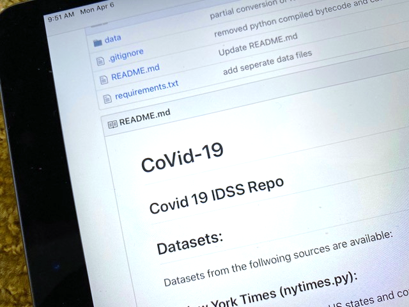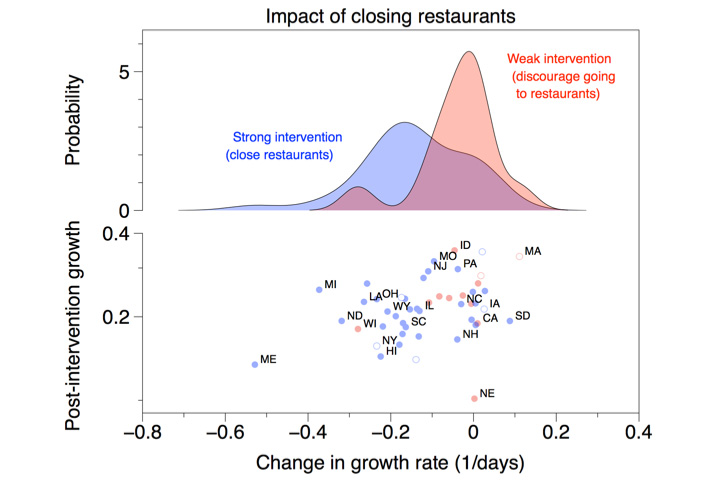IDSS COVID-19 Collaboration (Isolat)
IDSS COVID-19 Collaboration (Isolat) is an initiative organized by IDSS that takes a data-driven approach to addressing the COVID-19 pandemic. This volunteer effort brings together the broader community affiliated with IDSS and aims at providing systematic and rigorous analyses of data associated with this crisis in order to inform policy makers. While the specific questions are evolving as more data is collected, there are three broad areas that this group is addressing: 1) creating a data structure of heterogeneous data sets (e.g., spread of virus, mobility, interventions), 2) performing prediction of various crtical time-dependent variables, and 3) understanding the effects of intervention and policies on the spread of this virus. We recognize that much of the data is noisy and that testing is evolving slowly, hence the quantification of uncertainty of our results is key to providing actionable outcomes.
This group meets daily to discuss findings among subgroups. Such findings will be made available on a wiki for people to view and analyze. A subset of such results that has been vetted by the group will be published on this site to invite broader scrutiny, analysis, and extensions. This type of dissemination is a departure from our standard Modus Operandi of doing long term research and submitting it to journals. In the context of this pandemic, it may be essential for policy makers to move quickly and delaying (even imperfect) information for weeks or days could have a damaging impact on the health of the community. Consequently, our vetting process is somewhat limited and we look forward to engaging the larger scientific community to make these findings more precise.
Please contact idss-isolat@mit.edu with any questions you may have.
Highlighted Research
April 7, 2020
Researchers across the globe have been putting their minds and machines to work addressing many important COVID-19 related questions: When will we run out of hospital beds? How effective are current interventions? How should governments plan for the resumption of work and increased mobility? Timely access to good data is critical for this work. Various groups have made numerous data sources available, and Isolat has gathered some of these sources into a ‘virtual data lake.’ The virtual data lake allows researchers to access a large number of data sources simultaneously, with up-to-date data, using simple python scripts.
April 3, 2020
Anette "Peko" Hosoi, Associate Dean of Engineering; Neil and Jane Pappalardo Professor, Mechanical Engineering
Over the past few weeks, states have taken a variety of different approaches to combat the evolving COVID-19 pandemic. These range from strong actions (e.g. close all bars and restaurants) to relatively mild responses (e.g. discourage people from going to restaurants). This graph shows how much the rate at which the disease spreads, changed in each state after restaurant-related interventions.



